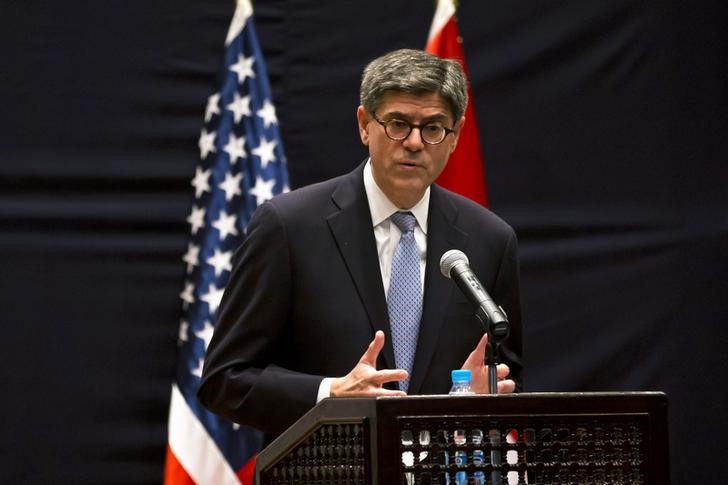By Jason Lange
WASHINGTON (Reuters) - Washington's worries about the global economy until recently were dominated by concerns over China's currency policies. Now the Obama administration's toughest words increasingly fall on Europe.
In a speech on America's international economic priorities and in subsequent comments, a top Treasury official on Wednesday praised shifts in Chinese policy while calling on Germany to open its fiscal purse strings to help Europe's lagging economy.
The United States has ratcheted up pressure on Europe in recent months to act decisively to help its economy, which Treasury Secretary Jack Lew has said faces a "lost decade" of low growth.
Lew's top official for international affairs said the European Union's central bank should take "continued steps" to stimulate growth and that countries with strong fiscal positions and exports should encourage more consumer spending.
"The appropriate action is to bring all the available tools to bear," Nathan Sheets, the Treasury's undersecretary for international affairs, said. He added Berlin had taken positive steps with regard to infrastructure spending.
"I encourage them to move more rapidly than they have so far," he said.
The euro zone has become the sick man of the world economy in recent years, which is worrisome to Washington because it is a top U.S. trade partner and geopolitical ally. The currency bloc is flirting with another recession after emerging from its longest-ever downturn last year.
Sheets also had tough words for another close U.S. ally, Japan, which slipped into recession in the third quarter. Sheets said there was an "urgent case" for structural reforms to spur faster economic growth.
But as for China, whose meteoric ascent in recent decades has led U.S. President Barack Obama to call for a "pivot to Asia," Sheets said there were signs Beijing was intervening less in currency markets, a perennial bugbear in Sino-American relations. U.S. manufacturers have long argued an artificially cheap yuan makes Chinese imports unfairly cheap.
Washington thinks Beijing has so far lived up its commitment to move towards a market-determined exchange rate, which Sheets said should help American firms sell their wares in China.
Sheets noted that at July meetings with U.S. officials, Beijing committed to moving towards a market based exchange rate.

"If China continues to live up to this commitment, as it has in the months since the (July meetings)... the result would be increased household purchasing power and stronger domestic demand," he said.
(Reporting by Jason Lange Editing by W Simon)